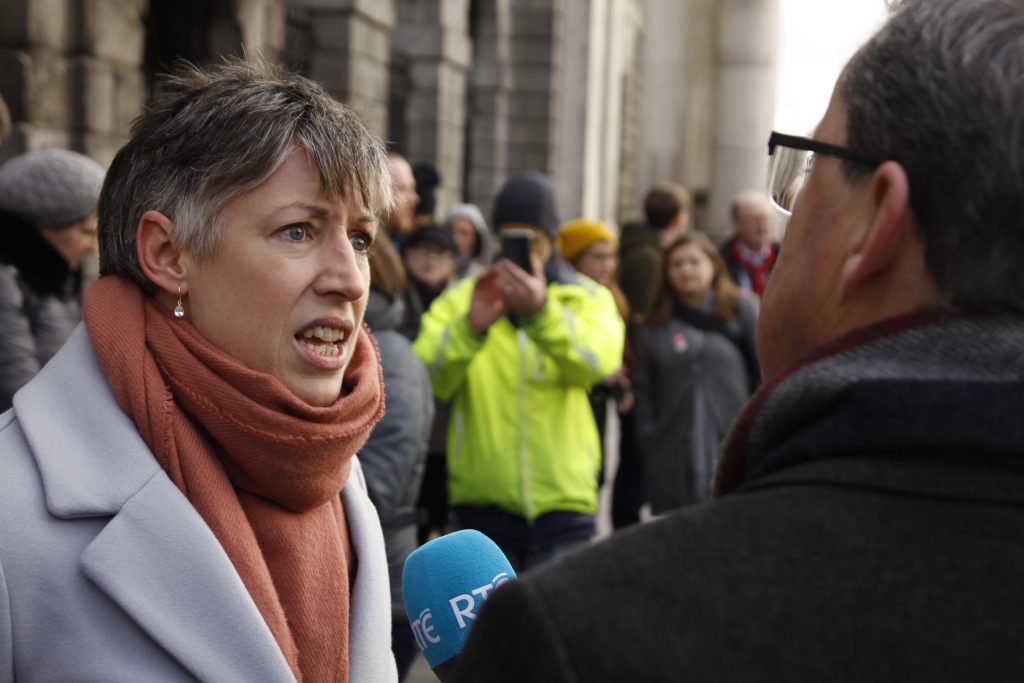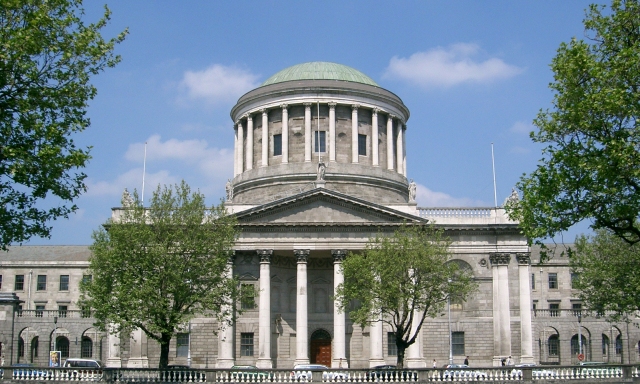Climate litigation key in absence of political will

December 13th, 2019
Climate litigation and activism are the key tools to push policymakers to take concrete action to tackle the growing threat of climate disruption, attendees at COP25 in Madrid have heard.
Speaking at an event on climate litigation yesterday, Sadhbh O’Neill of Friends of the Irish Environment said that civil society groups are increasingly turning to legal means in the “absence of political leadership”.
The environmental group is one of the most active civil society litigants in Ireland, currently challenging the controversial Shannon LNG gas terminal, the State’s National Development Plan, as well as the State’s climate mitigation plan in the landmark Climate Case Ireland.
During a four-day hearing in January, FIE argued that the plan is not designed to achieve emissions reductions required to halt rising temperatures and, as such, does not protect citizens from the worst impacts of climate breakdown.
This, the group argued, is a clear breach of constitutional and human rights, including the right to an environment consistent with human wellbeing and dignity. The group lost the case, but has now lodged two appeals – a direct appeal to the Court of Appeal, as well as an application to ‘leapfrog’ the case directly to the Supreme Court.
Despite the way the judgement fell, Ms O’Neill said that the case pressed the Government to produce its new climate action that in principle “will reduce emissions rapidly and deeply”.
“In the absence of political leadership, civil society has taken to the courts to put science, human rights and climate justice at the heart of Ireland’s climate response,” she added.
“it’s clear that litigation and activism have already changed our decision-makers’ perception of climate risks and urgency.”

Wave of litigation
The world has seen a wave of legal climate cases over the past few years as citizens and civil society groups turn to the courts to hold governments and corporations to account for their climate failings.
This movement started in 2015 when the Urgenda Foundation and 900 citizens successfully sued the Dutch government for climate inaction.
This landmark court ruling paved the way for Climate Case Ireland and a succession of other cases in at least 26 other countries, including the US, Switzerland, New Zealand, and Colombia.
More recently, the Berlin Administrative Court decided in October on the first-ever climate case against the German government brought by three farming families and Greenpeace Germany over its failure to meet its 2020 climate target.
The case was dismissed but not before the Court recognised the right to a safe climate. This was the first time that a German court ruled that fundamental rights can be violated by the impacts of climate change.
In Italy, a coalition of over 100 organisations with the backing of over 10,000 citizens looks set to bring the first climate case against the State for inadequate climate action. Plaintiffs in the case include a number of individuals, organizations, and children represented by their parents.
Litigation has also been taken against corporations, such as in the Netherlands where the Dutch branch of Friends of the Earth together with seven other environmental NGOs and 17,000 citizen co-plaintiffs are challenging Shell for its role in the climate crisis.
It was also announced during COP25 that the Commission on Human Rights in the Philippines decided that 47 investor-owned corporations, including Shell, ExxonMobil, and BP, could be found legally and morally liable for human rights harms to Filipinos arising from climate change.
The decision is the first time that big polluting companies have been found responsible for human rights harms resulting from the climate crisis, according to Yeb Saño of Greenpeace Southeast Asia.
“With the conclusion of the investigation by the Commission… we believe many more communities will take a stand against fossil fuel companies that are putting profit before people,” he added.

Access to justice under attack
FIE, other civil society groups, and the legal profession are fearful that access to justice rights on environmental and climate matters will be seriously curtailed in Ireland if legislation changes proposed by the Government are passed.
Since the existence of the Heads of the Housing and Planning and Development Bill 2019 became known last month, legal professionals, academics, citizens’ groups, and international environmental lawyers have all outlined concern.
Proposals include changes to cost rules and stricter grounds for citizens and environmental NGOs to quality to bring a legal case challenging poor planning decisions. Environmental groups, for example, would have to be in existence for up to three years and have over 100 members to qualify.
Critics argue that such changes would make it near impossible for citizens, local groups and environmental NGOs to challenge bad planning decisions in the courts and hold authorities to account.
The Government launched a public consultation on the Heads of the Bill on Monday, with little to no fanfare and without informing environmental stakeholders.
The Environmental Pillar said today that the format, timing, short deadline and poor advertising of the consultation “flagrantly disregards” our international, EU and national obligations for public participation on environmental matters.
As of the writing of this article, the consultation page itself is not available.
[x_author title=”About the Author”]







